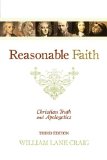A friend of mine at work sent me a link to a review of Guitar Praise. The subject of the review is a new video game based on the immensely popular “Guitar Hero.” The reviewer dubs it, “Guitar Hero minus the sex, drugs and rock ‘n roll.” In effect, the game will be strikingly similar to the multi-million dollar Guitar Hero series of games, save that the music will be of the “Christian” variety. Dust off your yellow and black striped leather pants; Stryper is back.
Any thoughtful observer, Christian or not, will note that Guitar Praise is one of a plethora of “Christian-ized” products that are on the market today. For a few decades now, Christian versions of otherwise secular wares have flooded the marketplace. The formula for the creation of said wares is apparent in reviewer’s title above: Take a product (Guitar Hero), clean it up (in our case, subtract the sex, drugs and rock ‘n roll), and ship it.
The discussion of Christians borrowing from popular culture is probably as old as Christianity itself. When our theological pens have spilled their ink, we are still faced with the very practical issue of living within a culture. Such issues are not uncommon in the NT (e.g., food sacrificed to idols in 1 Corinthians 8). Part of the project of how Christians ought to “be in but not of” the world is concerned with adopting (or not adopting) the cultural forms that surround us.
Anyone who has spent any amount of time thinking about such issues is hardly want for literature about the subject. BBG, still wet behind the ears, already has an article about it; I daresay it will have many more. As such, I cannot help but rehash much of what is already written on the topic, but I think the occasion of Praise Hero warrants the beating of what some might consider a dead horse:
First, having a Christian flavor of something, be it music or merchandise, does little to differentiate Christians and Christianity from the rest of the world. There are two sides to this coin:
- On the first side, in our choice-saturated consumer culture, Christianity can appear as just another lifestyle choice among many; one more product on the shelf, similarly packaged and priced along side others.
- On the second side, Christianity is finding a touch-point with the world around it. “Hey, you like video games? We do too!” Herein is an expression (though perhaps unintended) of the sentiment that Christians are really “normal” people, who enjoy and interact with many of the same things found in the secular world. I’ve had much success building relationships through interests I’ve shared along these lines.
Second, we also have to remember that there are few, if any, “neutral” carriers out there (I’m a broken record,sorry). Whatever we adopt carries with it certain assumptions or other baggage with it. As one example, for Guitar Praise, consider the enjoyment one achieves through escaping into a fantasy world where one is “playing” the guitar with great proficiency. In reality, of course, learning to play the guitar well would require hours of diligent practice; something that is not always fun. With Guitar Praise, we get the superficial “glory” that would otherwise only be acheived through hours of hard work. Note also that true musical success comes to most as a mixed bag, full of other unpleansatries which I’m sure the game ignores. I’m reminded here of EPCOT’s “World Showcase”: You get the glory of (superficially) traveling around the world with none of the headache (and I’m not just talking about jet lag).
Third, we have to ask, ought Praise Hero (and its ilk) occupy the time and effort of Christians? There is a slippery slope here. On one end of the spectrum is the idea that any recreation, or time spent away from healing the sick and reading the Bible is intrinsically “lesser” than any obviously “Christian” activity. Are not video games an tremendous waste of time? Moreover, if our raison d’etre is to glorify God, how exactly does this game do that? Is it not another distraction from our calling? On the other end of the spectrum is the thought that it’s not intrinsically bad to rest (nay, it’s good; c.f., the Sabbath), and we need to punch out every now and then and relax. I would only bring to bear two considerations:
- What are our time ratios? What is the “time spent playing video games” to “time spent reading the Bible” ratio? Does God favor a high one, or a low one? Additionally, does one get attention to the peril of the other? What gets a higher priority in our lives?
- There are other ways to “punch out and relax.”
Finally, I’m reminded of a quote from Thomas Oden’s How Africa Shaped the Christian Mind that Danny shared with me: “Orthodox Christianity has always had better things to do than simply echo the gifts that the despairing world wants to give to the church, or to borrow hungrily from the world’s constantly changing aspirations.” Amen, anyone?
I am acutely aware of the fact that this post comes across as largely pejorative. I am equally aware of the fact that there aren’t easy answers here, and I can understand why some might think Guitar Praise is a great idea (apart from the revenue it will generate). As is my custom, I would simply urge my Christian readers to think Guitar Praise through, before it is condemned or…well…praised. We must never forget that when Rome was Christianized in the 4th century, Christianity was also Romanized, and the results weren’t all positive. So also, when we Christianize a product, idea or medium, we must remember that we too are subject to changes which are all too often ignored.
Read Full Post »










